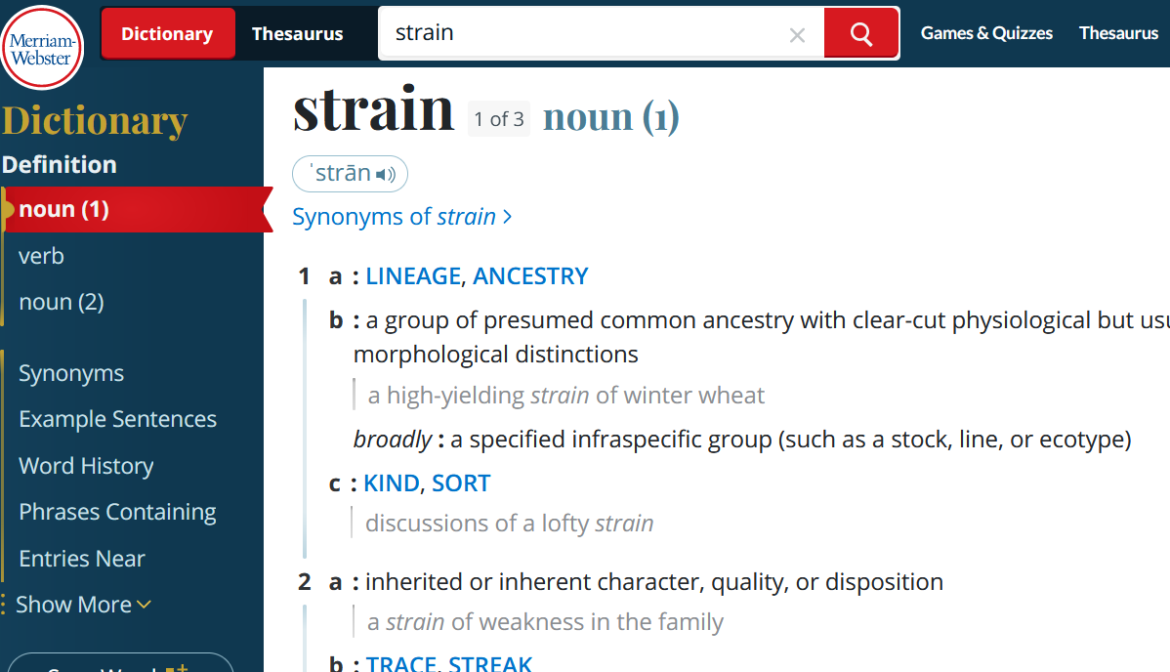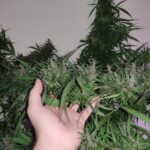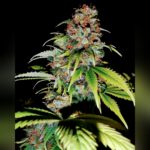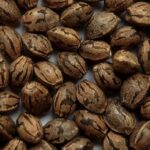There’s a new meme going round among cannabis aficionados which involves variations on a theme of “You can’t use ‘strain’ to refer to Cannabis or any other plants because the term ‘strain’ is only for viruses.”
As with so much ‘received wisdom’ in the world of weed, this is a claim that’s easily settled by closing our internet browsers and opening a book by an expert.
First, let’s see if ‘strain of cannabis’ is an acceptable use for ‘strain’ in Standard English by consulting Merriam-Webster, the most prestigious dictionary of American English. There’s no need to search for long because their very first definition for strain is illustrated as follows: “a high-yielding strain of winter wheat.”
That settles the question of whether we can apply the term ‘strain’ to Cannabis in contexts such as conversations, emails, essays, or furious arguments on grow forums and Instagram. No matter how angrily typed, this usage is correct Standard English…. Pedants, please click that link….
But what about more formal contexts such as scientific studies of Cannabis?
Among the leading authorities in this field is Dr. Ernest Small, a crop scientist who’s been publishing on our plant since the late 1960s, perhaps most famously on the question of its taxonomy. (As he’s been at pains to explain repeatedly for over half a century, there’s only one species of Cannabis.)

‘Outstanding in his field’ – Dr. Ernest Small and subsp. indica landrace Cannabis grown on behalf of the Canadian government at the Central Experimental Farm, Ottawa, 1971
A quick search for ‘strain’ in Ernest Small’s 2016 publication Cannabis: A Complete Guide shows the term used no less than 337 times. Given that Dr. Small is widely regarded as the leading expert on questions of Cannabis classification and nomenclature, it’s enough to say that if he uses ‘strain’, you’re safe to do so too.
Nevertheless, here’s his explanation as to why. Handily, he also addresses the International Code of Nomenclature for Cultivated Plants (ICNCP), misreadings of which are a key component of the more sophisticated variants of the ‘You Can’t Say Strain!’ meme:
FORMAL BOTANICAL NOMENCLATURE AND “STRAINS” OF CANNABIS SATIVA
Terms used in botanical classification are dealt with in Chapter 18 [‘Botanical Classification and Nomenclatural Issues’], but one technical point bears mention here in order to correctly refer to genetic variations of marijuana plants. Article 2.2 of the current nomenclatural code for cultivated plants (Brickell et al. 2009), a legalistic document that governs names for cultivated plants, forbids the use of the term “strain” as equivalent to “cultivar” for the purpose of formal recognition. Very few marijuana strains satisfy the descriptive requirements for cultivar recognition, although many marijuana cultivars (mostly grown for fiber or oilseed rather than cannabinoids) do and by convention are denoted in single quotes. However, Cannabis strains are conceptually identical to Cannabis cultivars. Snoeijer (2002) treated Cannabis strain names as equivalent to cultivar names.
The crucial point for folks who insist on policing use of strain by aficionados while authoritatively thumping the ICNCP is that what the ICNCP proscribes is “the use of the term “strain” as equivalent to “cultivar” for the purpose of formal recognition.” This proscription has zero bearing on most contexts in which you’re likely to be using ‘strain’…. and none on most plants you’re likely to be growing either: “Very few marijuana strains satisfy the descriptive requirements for cultivar recognition.”
Ironically, a loose term like ‘strain’ is well-suited to the current condition of most ‘marijuana’ crops cultivated in Europe and America. Regrettably, most of what’s emerged from decades of prohibition is an ill-defined and ever-increasingly homogeneous mess of bottlenecks and hybrids crossed with hybrids, out which very few ‘cultivars’ that qualify for recognition as ‘cultivars’ in the formal sense have yet been developed.
Contrary to popular perceptions, most cannabis strains at dispensaries and online ‘seed banks’ – or in the fields and greenhouses of ostensible ‘expert’ growers – are far from being ‘designer’. As yet, most are still stranded decades behind crops such as corn or even wheat, for more on which see The Future of the Cannabis Industry in a Single Image.
Using ‘strain’ for plants is straighforward Standard English, which is why this usage is natural to any native speaker of English. It’s totally ok for you to apply it to Cannabis. You’re also following in very authoritative footsteps if you choose to take Dr. Small’s lead and use ‘strain’ for messy modern hybrids in academic contexts.
As for landraces and their wild-growing relatives, ‘strain’ seems well-suited to both. That’s especially so in regions of Asia north of the tropics – perhaps most famously in the Himalaya, the Punjab, and Eurasian Steppe – where they’re typically found in crop–weed complexes that are intergraded. But, again, just so it’s absolutely clear, unless you’re planning on publishing an academic paper on landraces, in which case you simply need to define your terms, this whole question is a non-issue anyway.
***
Update: Another pedantic meme is doing the rounds courtesy of the ‘Language Police’: “Varietal isn’t a noun. It’s only an adjective. And you’re not allowed to use it is a synonym for terms such as ‘variety’ or ‘cultivar.”
Want to know whether varietal is a noun or its use is correct Standard English? Consult a dictionary such as the Cambridge Dictionary, where the second definition of varietal is – no drum roll necessary – a noun: “a particular type of a plant”. The example given is “Restaurant menus might specify a particular varietal of vegetable or mention the farm where it was grown.”
Difficult though it may be for some folks to accept, this is once again a total non-issue. No amount of technical detail, scientific evidence, argument, or heavy-handed disdain changes the fact that this usage of ‘varietal’ is established in Standard English. In so far as there’s anything further to be said involving science, this happens when the conversation moves off botany and on to the science of linguistics….






